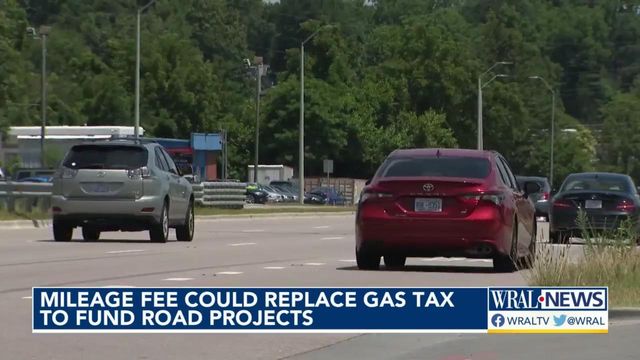By the gallon or by the mile: Driver volunteers wanted for study of new way to pay for road maintenance
As state officials work to find a replacement for the gas tax, North Carolina drivers can take part in a pilot study: Making a switch from paying by the gallon - to paying by the mile.
Posted — UpdatedAs state officials work to find a replacement for the gas tax, North Carolina drivers can take part in a pilot study: Making a switch from paying by the gallon to paying by the mile.
It's called a mileage-based user fee.
Drivers keep track of the mileage on their odometer or attach a small device to their car's on-board computer to log miles. Then, drivers get a bill to pay at the end of the month.
Until a new program is implemented, drivers of electric cars, who don't use gas, are able to use the roads paid for by the gas tax without paying as much for state transportation as drivers of gas vehicles.
Since 2020, electric vehicle drivers pay an additional $130 annual registration fee. However, NCDOT says its data shows EV and hybrid owners pay about $50 less in state transportation taxes than drivers who pay the gas tax.
"It's not my intention," says Shannon Code, who drives a Tesla. "I like maintained roads."
However, when he charges his Tesla, he doesn't pay a penny toward maintenance or upgrades to the roads he drives.
The mileage-based user fee would ensure drivers of electric or fuel-efficient vehicles are still paying their equal share in helping maintain the state's roads.
A previous study in 2020 tracked the mileage of hundreds of drivers in North Carolina to see how much they pay in gas tax compared to a pay-by-the mile fee:
- Rural drivers saved the most. They put $17 back into their wallets.
- Drivers who use both urban and rural roads saved $8 in a year.
- Urban drivers actually paid more with the mileage-based fee. They spent $10 more a year. That's because people in cities tend to drive more electric or fuel-efficient vehicles.
"The way we fund roads in the United States and especially on the East Coast is something we’re going to have to work to find a solution to," says Miller.
The mileage-based user fee would make all drivers pay, whether they're charging up or filling at the pump.
Jordan Sales, who drivers a traditional gas vehicle, says he thinks the mileage-based user fee could potentially save him money overall.
"I usually only drive when I need to, so I guess it would help me in the long run," says Sales.
The study will also consider the privacy concerns that could come up with tracking mileage using GPS.
• Credits
Copyright 2024 by Capitol Broadcasting Company. All rights reserved. This material may not be published, broadcast, rewritten or redistributed.






